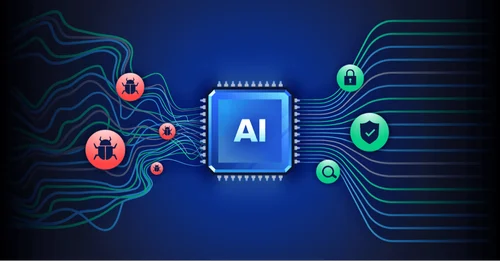
Alyssa VanPelt-Cathcart, Staff Writer
SUNY Oneonta had Dr. Fidelis Kilonza, the Executive Dean of School of Engineering and Architecture & Senior Lecturer at Kenyatta University, as a guest lecturer who spoke to students about the dual edge of using A.I. Kilonza specializes in water, environment, and sanitation.
Kilonza had an insightful discussion on both the negative and positive impacts of A.I. An example he provided of its negative effects included worsening the global inequality between countries, as 3.6 billion people are without internet access globally. This means, the countries without internet or reduced bandwidth cannot utilize A.I. There are only as many A.I. systems as people can count which include META, ChatGPT, Gemini, etc. Countries, such as the U.S., have been surpassing in the testing and development of A.I. Furthermore, global inequality is multi-dimensional.
Another problematic aspect of A.I. is that because it’s primarily tested in the Northern Hemisphere, it’s being tested on people with lighter complexions. For example, if you ask A.I. to create a photo of you, it will assume you are white. This creates an unhealthy bias within the system. There is a 99% accuracy on white men versus 35% accuracy on dark women for facial recognition. Furthermore, A.I. has been known to write racist or homophobic messages because it’s learning from an existing pool of information. A.I. engines such as ChatGPT will take information you share, such as a document, and learn from it. If a population produces harsh language, it will mimic that language. During this explanation, Kilonza expresses that there are ways for people to turn off the feature that uses your documents as part of its learning, but most companies will keep it hidden so they can continue their free testing.
Despite the negativity and the stigmatization of A.I., many places have found positive impacts of it. Young farmers in Kenya use A.I. to narrow a technology gap as anyone can now become coders because of A.I. This will reduce skill barriers within competitive industries, especially STEM. Furthermore, it has created a health care access revolution. A.I. has been trained to better identify abnormalities within radiology images. It has allowed for more efficient drug testing, treatment, and repurposing. As A.I. has continued to improve, it has become more acceptable to use quick translators such as Google Translate and has created many new jobs.
Nearing the end of the lecture, Kilonza argues if using spell check and a calculator is not cheating, then why is A.I. considered cheating? A.I. is a tool to support an already secure system and shouldn’t be used to supplement human ideas or creativity. Many people who use A.I. are relatively young and have not developed the foundational skills to properly understand how A.I. works.
Leave a Reply